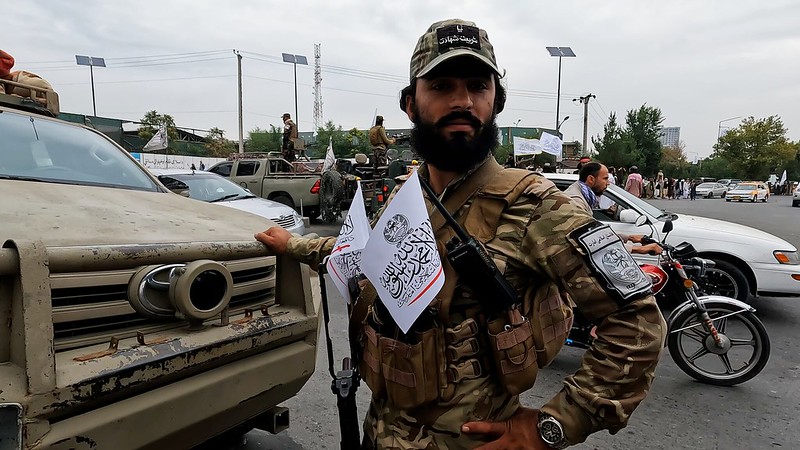
File photo: Taliban fighter in Afghanistan in 2022.
Russia’s State Duma, the lower house of parliament, has given initial approval to a bill that could pave the way for the Taliban’s removal from the country’s list of designated terrorist organisations, as Moscow seeks to redefine its relationship with Afghanistan’s rulers, who have held power since the US withdrawal in 2021.
The bill, which passed the first of three required readings on Tuesday, would allow the designation of a terrorist organisation to be temporarily suspended by a court. Vasily Piskarev, the head of the State Duma Committee on Security and Anti-Corruption, clarified, “We are not talking about justifying terrorism, nor about promoting terrorism. We are talking about temporarily suspending the ban on the activities of this organisation.”
The legislation still requires approval from the upper house of parliament and President Vladimir Putin’s signature before becoming law. Officials emphasised that the temporary suspension would allow Russia to “assess the situation” and reinstate the ban if deemed necessary.
The Taliban, added to Russia’s terrorist list in 2003, remains officially designated as a terrorist group, and making contact with its representatives punishable under Russian law. However, Moscow has hosted Taliban delegations at various forums, citing the need for engagement to stabilise Afghanistan.
This move reflects Moscow’s growing ties with the Taliban, whom President Vladimir Putin described in July as allies in combating terrorism. Russia views Islamist militant groups, including Islamic State Khorasan (ISIS-K), as a major security threat, particularly after ISIS-K claimed responsibility for a deadly attack in Moscow earlier this year. The Taliban claims to be actively working to eliminate ISIS-K’s presence in Afghanistan.
Russia’s relationship with Afghanistan is shaped by its fraught history. Soviet forces invaded the country in 1979, leading to a decade-long war that claimed the lives of 15,000 Soviet soldiers before their withdrawal in 1989. Decades later, Moscow has re-emerged as a key player in Afghanistan, hosting Taliban representatives for bilateral and multilateral talks aimed at fostering regional stability.
Western diplomats have stated that the Taliban’s lack of progress on human rights issues, particularly women’s rights, has stalled broader international recognition. Despite this, the Taliban has strengthened bilateral ties with regional powers, including Russia, which appears increasingly open to engaging with the group on a diplomatic level.
